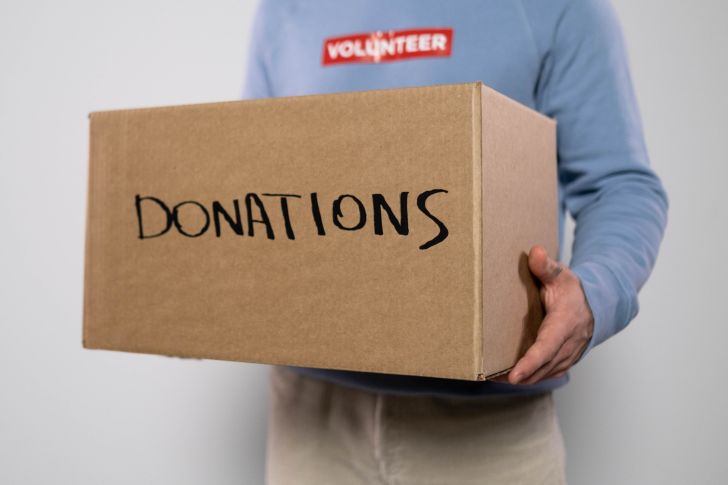If you’re wondering if it’s okay to raise money for yourself, the answer is yes. The government allows individuals to raise funds for themselves or others.
Then, how to get donations for yourself? There’s no difference in raising funds for someone or charities. But you need to know what is allowed to be done. The government has set about what you can do or what things you must not do in fundraising activities.
When we talk about fundraising, it refers to providing benefits to the wider community. Meanwhile, fundraising activities for oneself or certain individuals are not considered charity fundraising. This is because the wider community does not get the benefits.
Accordingly, self-fundraising is not tied to the registration requirements imposed on charities.
Things To Know How To Get Donations For Yourself
In other words, if a person or group donates to a specific individual, it is categorized as gift giving. No matter what name you use for the fundraising activity, it is not considered a charitable activity.
Here are the basic things you need to know on how to get donations for yourself.
For what purpose can I raise funds?
One can raise funds for personal needs such as medical illness, disability, social welfare, disaster relief, human rights, and others. To help you understand how to get donations for yourself, you should know a certain amount of how much money you need. Another piece of information you need to explain is how you spend or use the money. The explanation about your fundraising activities, you can think of when you plan your fundraising activities.
Open a separate bank account
The second thing you need to do on how to get donations for yourself is to open a bank account separate from your account.
When you open an account, explain to the bank your purpose as there are some special requirements needed. For example, the name of the account title should indicate who the beneficiary of the donation will be, for example, “The Christina Smith Fund.”
Opening a bank account can be a bit tricky. You need to think about who should have access to the funds received. Ensure that the person with access will distribute the funds for the purpose represented. Work with the bank to solve this problem.
If the fundraising you are doing is a combination of several individuals with the same goal, just open one account. This is done to keep costs down and make it simpler.
How to Get Donations for Yourself – Tax Consequences
As we discussed earlier, donations to individuals means gifts, the government has defined it. The gift is very different from a donation to a charity. If a donor can get a tax deduction from a donation to a charity on his income tax return, the individual gift is not eligible for the tax deduction. The IRS does not allow tax deductions for individual gifts.
Concerning taxes on gifts, a person who gives a gift to an individual may be liable for the gift he/she gives. This tax applies if a donor provides a gift with a value of more than $13,000 to an individual (this amount is adjustable annually).
People who receive gifts from other people generally do not have to pay income tax on the money he collects from the gifts of donors. Money that individuals collect from giving to others, it is a gift. Of course, gifts do not include taxable income. There are also some exceptions, so it’s best to find out more with your attorney or public accountant.
If you collect money from someone else’s gift in your bank account, and you earn interest on that deposit, there may be a tax liability on it. To overcome this, you can ask the bank about interest-free deposits.
Find out about local government regulations
Another thing you need to know on how to get donations for yourself is to make sure that you do everything according to the rules. You may need to contact the revenue department if you hire people for your fundraiser.
Each city has its regulations regarding this matter. Make sure there are no other local regulations that conflict with the activity you are doing.
So, those are the things you need to know about how to get donations for yourself. Find out the purpose of your fundraising, open a separate account to facilitate fundraising activities, find out about things related to the gift tax and lastly make sure your activities are by government regulations.
Tips to choose trusted fundraising websites
1. Choose a platform that suits your needs. You need to think about the cost, customer support, and ease of use of the website. You will need to select a personal funding website and create an account.
2. Determine the goals and deadlines of your fundraiser because you need to think about the processing fees of the total funds raised. Most fundraisers last between 1 to 2 months. Know how much you want to collect. Know exactly how much and when your campaign starts and ends.
3. Share your campaign page to let people know and make it easier for donors to access the page and donate. Post the URL of your donation page on social media and ask your friends to share it. You must publish the campaign on a social media account and then send personally to all contacts via email or direct mail.
4. Share your fundraising progress with your supporters. Post images and share them on your social media to keep your campaign relevant to supporters. Updates from your campaign can also let your supporters learn more about your campaign.
5. Acknowledge your supporters and thank the people who have supported your campaign. Thank the donor by highlighting the donor on social media or a personal thank-you note at the end of your campaign. Show your concern for their help. Thank all donors both publicly and directly.
Those are all the things you must know when it comes to a big question “how to get donations for yourself?”. By reading this information, hopefully you can find what you expect.
Sources
https://www.simplygiving.com/Home/PersonalFundraising
https://www.mass.gov/service-details/fundraising-for-an-individual
https://blog.fundly.com/personal-fundraising/




